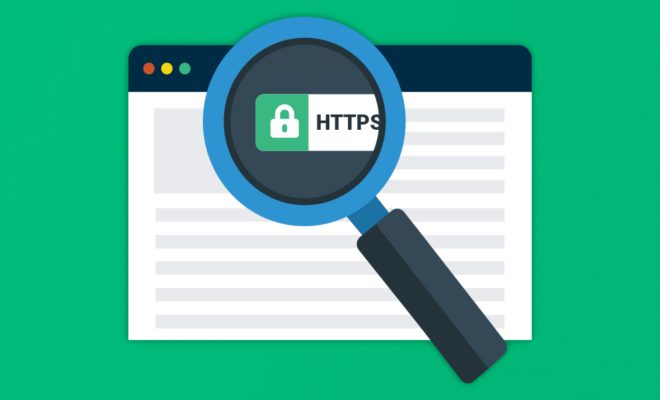What Is HTTPS, and Why Should I Care?

As we become more reliant on the internet for our daily needs, a crucial factor to consider is the security of the information we share. One term that has become increasingly prevalent in this regard is HTTPS. This article aims to explain what HTTPS is and why you should care.
HTTPS stands for Hyper Text Transfer Protocol Secure. It is the secure version of HTTP, the protocol that governs how data is transmitted over the internet. HTTPS encrypts data transmitted between a website and its users, ensuring its confidentiality and integrity.
Before HTTPS, the data transmitted between a website and its users was sent in plain text, meaning anyone who could intercept the data could read it. This made sensitive information like passwords and credit card information vulnerable to hackers. With HTTPS, this data is encrypted to make it indecipherable to any third party that may try to intercept it.
To ensure your connection is secure, look for the green padlock symbol in the URL bar of your browser. This indicates that the website is using HTTPS.
Now, why should you care about HTTPS? First and foremost, HTTPS protects your personal information online. It prevents hackers from stealing sensitive data like credit card numbers, social security numbers, or personal passwords.
Moreover, HTTPS can also prevent websites from being tampered with. If a website gets hacked, the hacker may replace the website’s content with their own. They can also redirect users to a phishing site, which will steal the users’ information. With HTTPS, even if a hacker manages to intercept the user’s connection, they cannot modify the content without being detected.
Additionally, HTTPS also helps to protect against malicious ads, pop-ups or malware. Many hackers use these methods to distribute their malicious software or to steal user data. HTTPS provides an extra layer of security by blocking these malicious advertising networks.
In conclusion, HTTPS is a vital security measure that you should be aware of and use. It ensures the security and privacy of your online communication, protects you from hackers and cybercriminals, and adds an extra layer of protection to your browsing experience. Make sure to look for the green padlock and “HTTPS” on the websites you visit. Stay safe online!






